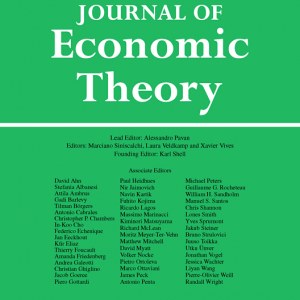
Cai, X., Gautier, P. and Wolthoff, R. (2025). Spatial search Journal of Economic Theory, 224:1--18.
-
Affiliated author
-
Publication year2025
-
JournalJournal of Economic Theory
This paper considers a random search model where some locations provide sellers with better chances of meeting many buyers than other locations (for example popular shopping streets or the first page of a search engine). When sellers are heterogeneous in terms of the quality of their product and/or the probability that a given buyer likes their product, it is desirable that sellers of high-quality niche products sort into the best locations (positive assortative matching, PAM). We show that this does not always happen in a decentralized market. Finally, we endogenize the location distribution and show that PAM between sellers and locations always arises in equilibrium. However, the equilibrium distribution of locations is too favorable for the sellers of high-quality, niche products.